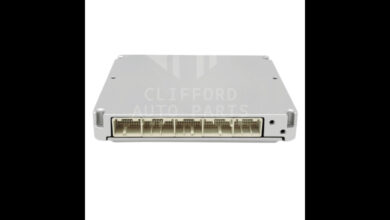Unveiling the Crypto Fintechzoom: Navigating the Future of Digital Finance
Table of Contents
In the rapidly evolving landscape of financial technology, the intersection of cryptocurrency and fintech has emerged as a particularly vibrant and transformative arena. This fusion—often referred to as “crypto fintechzoom”—is not just reshaping the way we think about money and finance; it’s actively redefining the boundaries of banking, investment, and currency itself. In this article, we delve into the heart of crypto fintech, examining its impact, the challenges it faces, and what the future might hold for this burgeoning sector.
The Rise of Crypto fintechzoom
Cryptocurrency, once a niche interest among tech enthusiasts and libertarians, has burgeoned into a major financial sector, capturing the interest of investors, businesses, and regulators worldwide. At the same time, fintech, or financial technology, has revolutionized traditional financial services, making them more accessible, efficient, and secure. The convergence of these two fields has created a new paradigm where digital currencies and blockchain technology play a central role in innovating financial services.
Key Components of Crypto fintechzoom
Crypto fintech encompasses a broad range of applications and services, from digital wallets and payment platforms to decentralized finance (DeFi) and asset management tools. These components share a common foundation in blockchain technology, a decentralized ledger that ensures transparency, security, and immutability of transactions.
Digital Wallets and Payment Platforms
Digital wallets and payment platforms represent one of the most direct applications of crypto fintechzoom fintech, allowing users to store, send, and receive digital currencies like Bitcoin, Ethereum, and others. These platforms offer advantages over traditional banking, including lower transaction fees, faster processing times, and increased accessibility for unbanked populations.
Decentralized Finance (DeFi)
DeFi takes the principles of blockchain and applies them to a wide range of financial services, from lending and borrowing to insurance and asset trading, all without the need for traditional financial intermediaries. DeFi platforms offer higher transparency, security, and flexibility, empowering users to engage in financial activities that were previously out of reach.
Asset Management and Investment
Crypto fintechzoom has also revolutionized asset management and investment, offering novel ways to invest in digital and traditional assets. Through tokenization, physical assets like real estate or art can be divided into digital tokens, making them more accessible to investors. Moreover, cryptocurrency itself has become a new asset class, with platforms offering tools for trading, portfolio management, and yield farming.
The Challenges Facing Crypto Fintechzoom
Despite its rapid growth and potential, crypto fintechzoom faces several significant challenges. Regulatory uncertainty remains a major hurdle, as governments around the world grapple with how to classify, regulate, and tax digital currencies and blockchain-based services. Security concerns also loom large, with high-profile hacks and scams underscoring the need for improved safeguards and user education.
Another challenge is scalability and performance. As more users flock to Crypto Fintechzoom platforms, some blockchain networks struggle to handle the increased load, leading to higher transaction fees and slower processing times. Addressing these technical limitations is crucial for the continued growth and adoption of crypto fintech.
The Future of Crypto Fintechzoom
Looking ahead, the future of Crypto Fintechzoom appears both promising and complex. Continued innovation in blockchain technology, such as the development of more scalable and energy-efficient consensus mechanisms, is likely to address some of the current challenges and open new avenues for growth.
Regulatory clarity will also play a critical role in shaping the future of Crypto Fintechzoom. As governments develop and implement frameworks for digital currencies and blockchain services, we can expect a more stable and secure environment for both users and providers.
Moreover, the ongoing integration of crypto fintech into mainstream financial services is likely to accelerate, with traditional banks and financial institutions increasingly adopting blockchain technology and digital currencies. This integration could further legitimize crypto fintech and facilitate its widespread adoption.

Conclusion
Crypto Fintechzoom stands at the forefront of financial innovation, offering a glimpse into a future where digital currencies and blockchain technology reshape the very fabric of finance. While challenges remain, the potential for positive change is immense, promising more inclusive, efficient, and secure financial services. As we navigate the complexities of this rapidly evolving landscape, one thing is clear: crypto fintech is not just a passing trend, but a fundamental shift in the way we understand and interact with money. Additionally, the involvement of money lender loan services adds another dimension to the financial ecosystem, further enhancing accessibility and liquidity for individuals and businesses alike.




